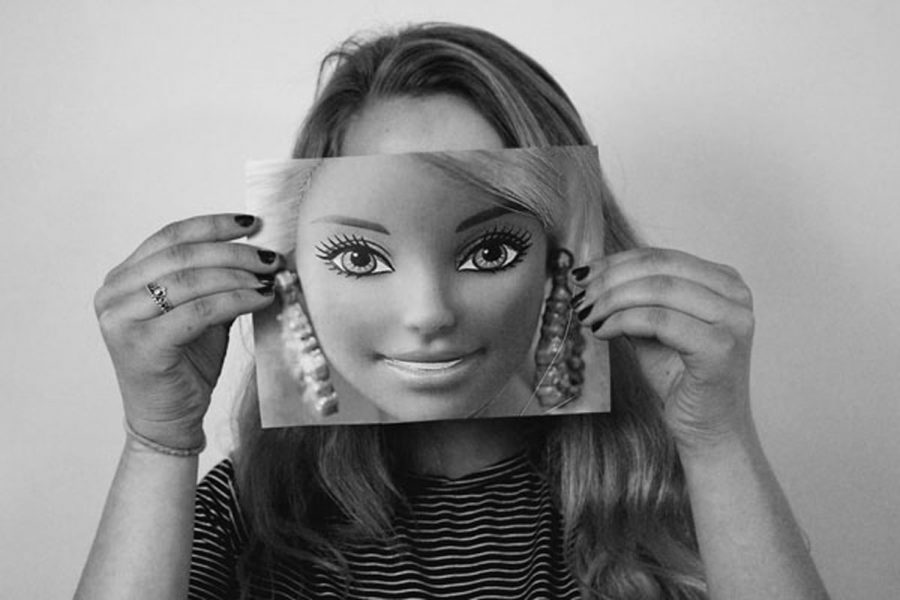Perfectly Imperfect
Perfection is defined as the condition, state or quality of being free or as free as possible from all flaws or defects. This is the goal that most people have in mind; it is the one thing, above all, that people strive to be. Most would agree that achieving complete perfection is impossible; however, every day people are labeled as “perfect” due to the extraordinary qualities and characteristics they possess that help them overcome their weaknesses.
This is especially true for the “perfect player.”
In athletics, the perfect players do anything, on and off the field, to help their team succeed. These players are well-rounded individuals that know what they need to do and do it. The “perfect players” are ready to give their all for their team at any given moment and often possess a certain knowledge about the game that their other teammates may not have. But even the most well-rounded players face challenges during a game.
“Overthinking causes me to be more cautious which slows down my reaction time,” senior varsity soccer player Ella Roberts said. “I can get caught up in the moment and [allow] things to get to my head.”
There are weaknesses that these so-called “perfect players” have that others do not see. Oftentimes, people just look at the surface instead of seeing what is really happening underneath. Every person faces problems and distractions in their life and the best players are no different; even perfect athletes are human.
Just as perfection does not exist in the real world, it does not exist in athletics either. There is not one person that can make every shot they take, but a lot of times, others expect these miracles out of the best players simply because they are expected to do well. Every athlete, no matter their skill level, must constantly work to better their game because it is not possible to be perfect in every aspect.
“As an athlete, there are always things people [can] work on to make themselves the best they can be,” senior varsity basketball player Nicholas Galante said. “I think it’s hard to narrow it down to just one thing that sticks out, there is a lot of I still have to work on.”
Athletes chase perfection in hopes of getting closer to it; whether that means practicing every single day or conditioning for hours, the idea of being better than other players, being the absolute best, drives a player’s game.
Despite perfection being an unrealistic goal that can never be achieved, the idea of obtaining it still drives the way athletes train and perform. For varsity volleyball player and junior Emmy Faber, the idea of perfection motivates her to try and make every pass, serve and hit to improve her game.
“Being perfect is a goal that I set for myself because I know I will never get there but I can come close to it,” Faber said.
Though perfection is one of the best motivators for athletes, it can also be the one element that imposes the most stress and pressure on them. For some athletes, missing a shot or not getting a hit each time up to bat is failure; if their team loses, they blame themselves. All of the opportunities that they missed replay in their thoughts instead of the successes they may have had during that game. The pressure to be perfect in their sport makes an athlete feel personally responsible for every win and loss they or their team may face.
“I get angry at myself if I mess up because I want to do well for my team and I hate the feeling of my team suffering for my mistake[s],” varsity softball player and junior Megan Lawrence said.
Some “perfect players” may feel the need to step-up and make the big play because of the pressure they put on themselves. If they are not playing “perfectly” then they are not playing to their best ability. A lot of the pressure that an athlete endures comes from themselves. Oftentimes, a person is their own greatest critic. The pressure these “perfect players” place on themselves to be the one player their teammates turn to make that game winning shot can, at times, be more harmful than beneficial.
“I do feel pressure to be 100% successful in my sports but most of that pressure I put on myself,” varsity athlete and junior Piper Foote said. “I believe that if I perform well, the rest of my team will perform well, so I really pressure myself into competing to the best of my ability 100% of the time.”
Playing “perfectly” is established by putting in extra time regardless of whether or not the athlete is at practice. The desire of some athletes that strive for perfection and put in extra effort can build the respect and trust of their other teammates, but can also place a lot of negative pressure upon an athlete.
“I put pressure on myself to play perfectly in my sport,” Lawrence said. “I practice really hard outside of softball so I can play the best I can.”
For any athlete, the only way to get better at a sport is to put even more time in; “perfect players” embrace this challenge and push themselves to surpass excellence and become the best. However, the reality is that everyone has their own strengths and weaknesses that makes them successful at what they do. An athlete gets playing time, not because they can do everything perfectly, but because they have specialities. Having a team full of players that have different specialties is what makes a great team, not having a team full of perfect players.
There is no such thing as perfection; it is an illusion sculpted by each individual to symbolize all of the characteristics in themselves that are missing or that they find unsatisfactory. A person cannot be the best at everything; but that does not stop people from trying. The “perfect player” may step-up and lead the team, but even they have faults that are difficult to overcome. For athletes, competing with the idea of perfection can be both beneficial and detrimental, but either way, everyone has weaknesses and that is what makes them perfectly imperfect.



